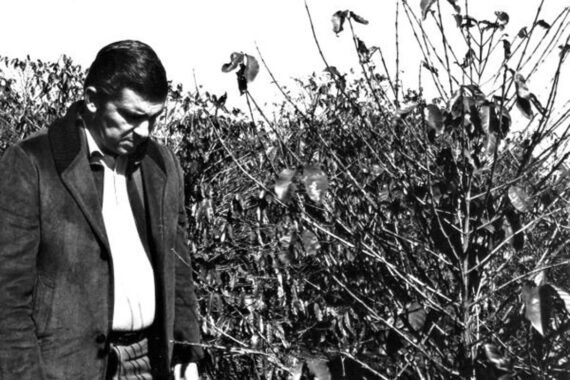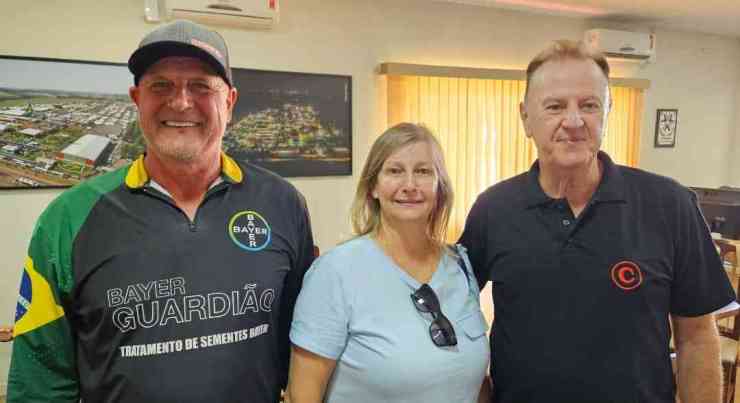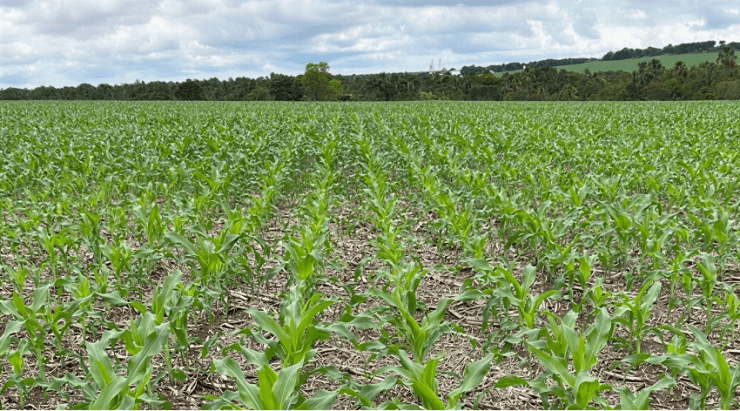More than four decades have passed since the Polettos settled on a 430-hectare plot of land they bought in Pitanga, in the central region of Paraná. They were already farmers in Campinas do Sul, in the north of Rio Grande do Sul, where they had a cereal business, and decided to invest in growing grains in the red soil, following the path of other producers from Rio Grande do Sul. “The soil in Paraná had not yet been corrected for soybeans. It was quite difficult at first,” recalls Valter Poletto Júnior, son of a father with the same name, who had bought the land in partnership with Júnior’s uncles.

Photo: Shutterstock
At that time, in the first half of the 1980s, newly opened areas were cultivated with corn and then with soybeans. Soil corrections were made only with the use of limestone at fixed rates, based on very sporadic analyses, that is, every now and then. It was only much later, in 2021, that Poletto Júnior began to use precision agriculture, after agreeing on the sample parameters with the technical team at C.Vale de Pitanga. “It was my dream to work with precision agriculture,” he confesses.
The rolling lands of Pitanga, with an altitude of over 900 meters, have also started to receive soybean seeds produced by C.Vale in Santa Catarina. Poletto is trying to sow four or five cultivars, staggering the planting.
Adjustments to soil quality and the use of cultivars appropriate to the region were decisive in ensuring greater uniformity of yield and increasing average soybean productivity by approximately 25%, from 58 to 72 bags/hectare. But Poletto Júnior wants to go further and increase yield to 80 to 82 bags/hectare.
To do this, he relies on technical assistance and technology provided by C.Vale. He has already defined a second round of soil sampling with the cooperative, along the lines of the first. “The results were very good, so I’m going to do it again. Today, without information, we can’t move forward. Fernando da Cruz (agronomist) follows our day-to-day activities and provides great advice in decision-making,” he praises.
I like it from the cradle

Photo: Shutterstock
Valter Poletto Júnior inherited his parents’ love of the countryside. At the age of six, he was already riding tractors. When he was studying agronomy, if his parents couldn’t pick him up in the city, he would get a ride to spend the weekend on the farm. His father has already left this world, but his mother Ivete helps him a lot by taking food to the fields, picking up produce from the cooperative and helping with the business. His wife Patrícia Albuquerque Zampier often warns him not to give too much importance to the problems of agribusiness so that their children Beatriz, 14, and Vítor, 9, don’t grow up thinking that the profession is only a source of hardship. “We have to show them that agribusiness is good and profitable,” she recommends.
Valter Poletto agrees with his wife and goes further. “Today, the quality of life in the countryside is better than in the city. Almost everything is mechanized, there is no more lifting of weights, the machines have air conditioning, GPS and internet. We would like at least one of them to stay in the countryside,” Poletto predicts. Valter and Patrícia are cultivating the tree of posterity so that the fruit will fall close to the tree.




